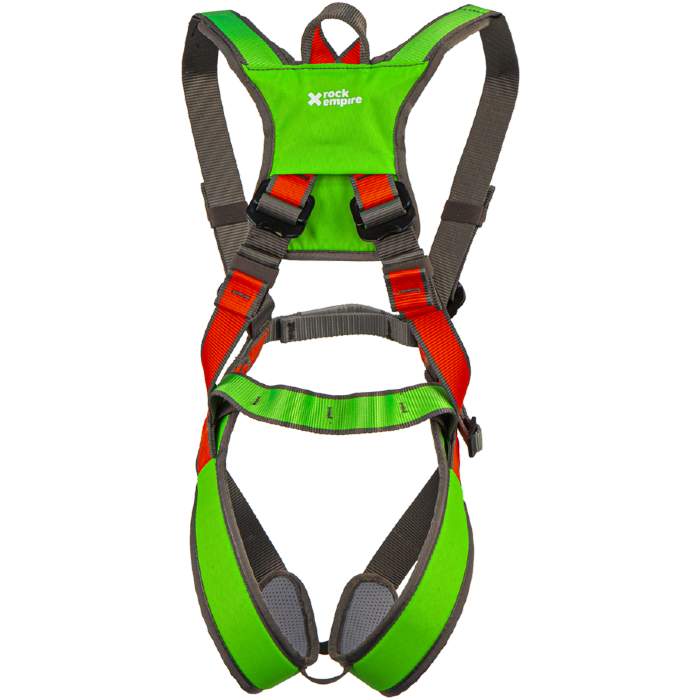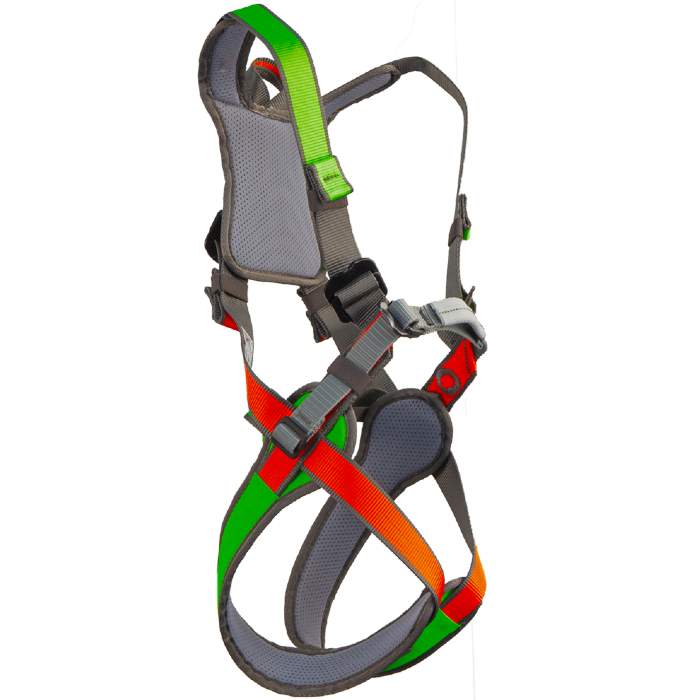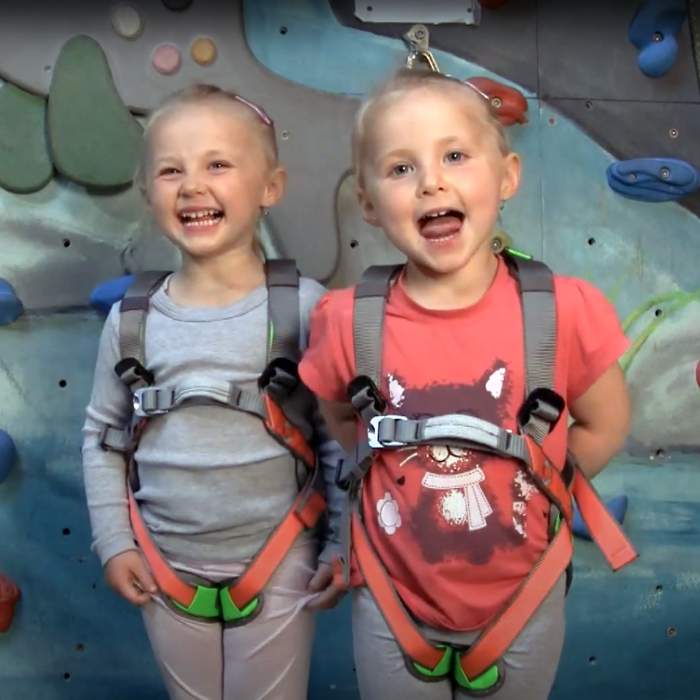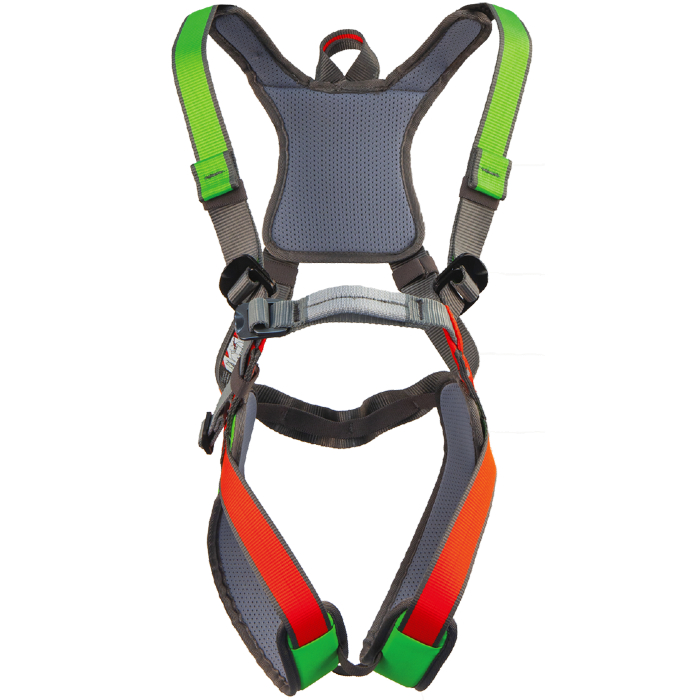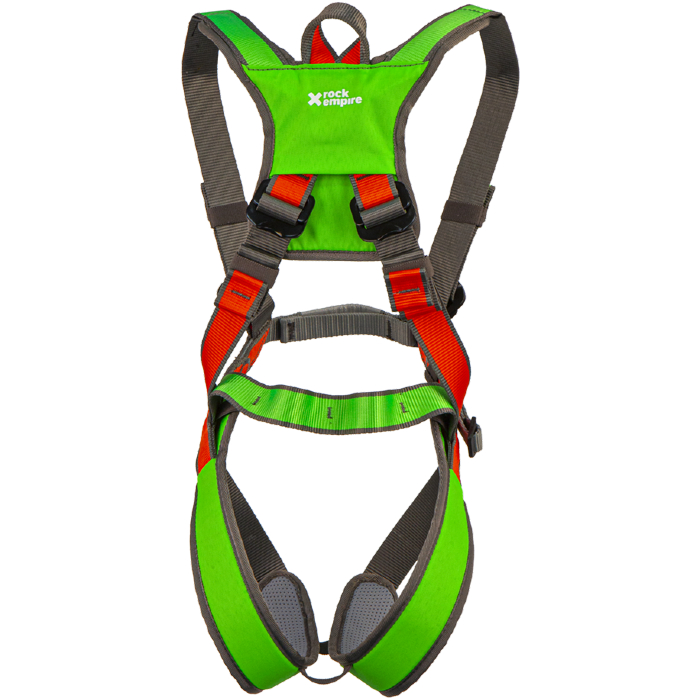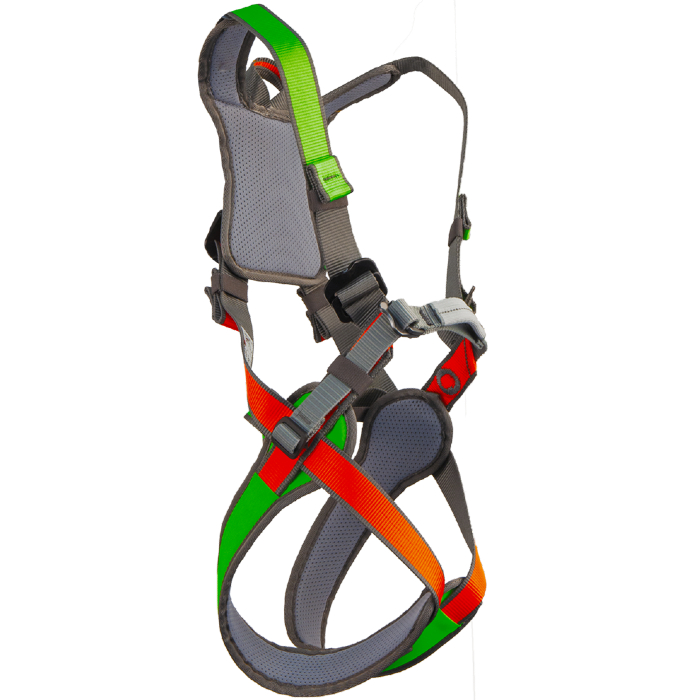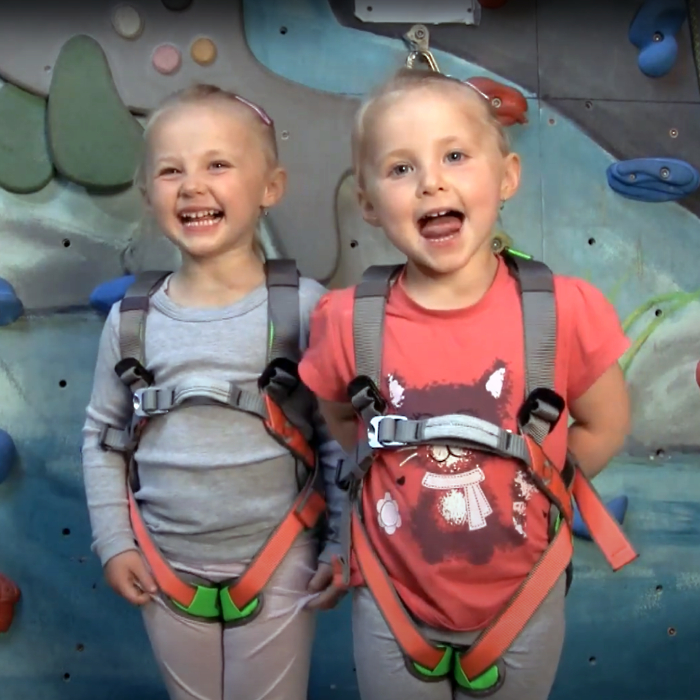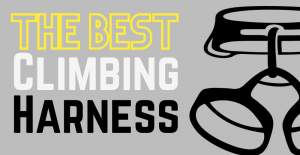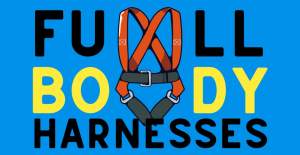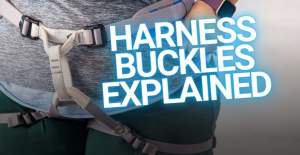Safety and Technical Information for Rock Empire Harnesses
Rugrat
Description
An all-body harness for the youngest users with body height up to 130 cm and maximum body weight 40 kg.
Wide straps, padded trousers and back straps will provide your child with the maximum climbing comfort.
Unlike the standard concept of two front attachement points, this harness is only provided with a single front
loop. You will mainly appreciate this safer solution when using a back attachement point.
Thanks to the back attachment point , the harness can be used for other activities, such as in rope parks. The
harness can be set with 4 buckles. For easier wearing, there is one more (non-dismountable) buckle .
The harness is comfortable when moving along the ground, as well as when climbing or hanging. Its application range is quite universal, including climbing, outdoor activities, as well as rope parks.
Easy and safe climbing. Fully adjustable. The harness is also comfortable for ground movement – without the
necessity of carabiner connection.
Retail price
This Product is Hard to Find.
We don’t know where you can buy this item online in the US. We’ll continue to check all the major retailers and will update this page as soon as we find one.
If you know where to find this online in the US, let us know, and we’ll add the link.
Weight (g)  WeightIn grams, the weight, as stated by the manufacturer/brand. If there are differences in weight (due to multiple sizes or optional accessories) we'll list them here. The default weight is the middle-most size, often this is size M. | 495 g |
| Fit | Kids - Full Body |
| Sizes | XS, S, M, L, XL, XXL |
Gear Loops  Number of Gear LoopsGear loops are used to hold gear (quickdraws, cams, etc) onto your harness. 4 gear loops is most common. 
0 - 1 Gear LoopsMost often on full body harnesses or guide/gym style harnesses. 2-3 Gear LoopsMostly found on lighter harnesses made for [ski] mountaineering or high-end sport climbing where weight is a high priority. 4 - 5 Gear LoopsThe standard/most common number for climbing harnesses. Perfect for sport and trad. More Than 6 Gear LoopsDesigned for long multi-pitch and big wall climbing, found on harnesses made to hold the maximum amount of gear. Worth ConsideringOccasionally, the number of gear loops will change on a harness model depending on the size. There could be 7 gear loops for the med/large but only 5 gear loops for the xsmall/small. In this case we list the highest number for the filters, and then write an explanation on the product page like, “Size S/XS can only fit 5 gear loops.” | 0 Gear loops |
Ice Clip Slots  Ice Clip SlotIce clipper slots are made to fit a carabiner that holds ice screws. These slots are generally only used by ice climbers but there is no disadvantage to having them on your harness. 
Less than 40% of harnesses will have ice clipper slots. And those harnesses will usually have 2 or 4 slots, often located next to, or between, the gear loops. | No |
| Belay / Tie-In | One Loop |
| Waist Buckle Type | Quick Adjust |
| Leg Buckle Type | None (it stretches) |
| Drop Seat | No |
Haul Loop  Haul LoopTrad climbers often look for a haul loop as they're intended to haul a rope (second line) or pack (while you climb the chimney). 
A haul loop can also hold shoes or other accessories. Although not the intended use, it is also commonly used to hold a chalk bag. | No |
| Certification | EN |
| Size Chart | XS-XXL one size fit -
130 cm / 51.18 in
|
No reviews yet.
If you know of a good product video that should be here, let us know, and we'll put it up.
If you're looking for gear videos in general, check out our Vimeo and YouTube channels to see the newest gear.
A pictoral representation of UIAA-105 and EN-12277 standards for harnesses.
The UIAA equipment standard provides a baseline for equipment performance in a test lab under controlled conditions on new equipment. Although these test conditions are relevant to the conditions encountered climbing, conditions encountered at the crags and the condition of the equipment are equally important. This recommendation from the UIAA member federation The British Mountaineering Council (BMC) provides vital equipment information that is NOT explicitly addressed in the standard, particularly failure modes of the equipment and recommendations for the use, inspection, maintenance, and retirement of equipment.


